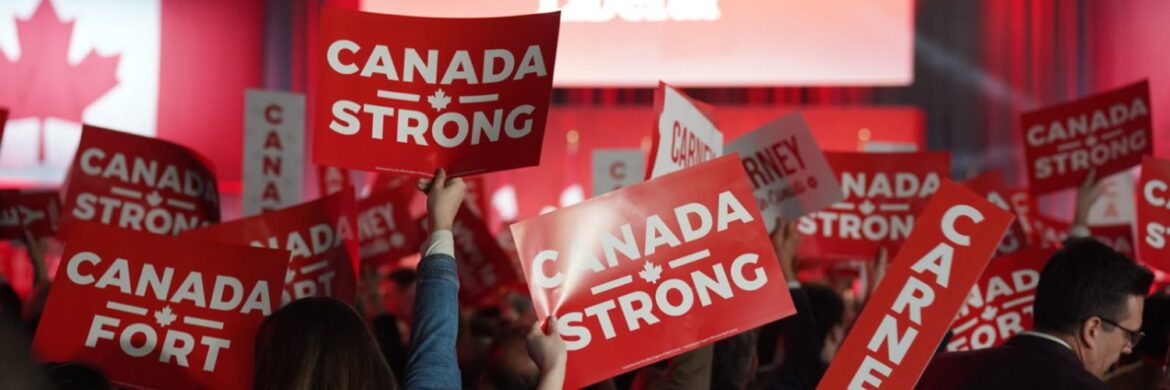Changes in bail and immigration laws may dominate the House of Commons when it resumes its sitting after a break. When it comes to law vs. sentiments, the latter tends to enjoy a slight upper hand.
Animated debates over demands for changes in bail laws and the scrapping of the Temporary Foreign Worker (TFW) program have been taking place all over Canada as Prime Minister Mark Carney gets ready for his second session of Parliament.
The session is expected to be stormier as the Leader of the Opposition, Pierre Poilievre, looks all set to spearhead a concerted campaign against the “failures of the Carney-led Liberal government.”
While Conservatives will gun for the ruling Liberals, the BC ruling NDP has indicated support for the Opposition over ending the foreign worker program. If the reactions to the BC NDP Premier’s recent statements are any indication, sentiments look hurt.
Since the start of 2025, many developed nations, including the US, Canada, Great Britain, Australia, New Zealand, Germany, and France, have been working on tightening their immigration controls, besides downsizing intakes of foreign students.
These legal changes have been impacting the movement of people from developing nations to developed nations. In addition, they have been providing a lever to the Conservatives to whip up anti-immigrant sentiments on the pretext of “saving jobs for their own people,” while fighting problems like housing and affordability.
Growing social conflicts may be at the back of the minds of the ruling clans, both in provinces as well as at the federal level, in their attempts to find solutions, but the problems are refusing to be contained. Instead, they are multiplying and becoming serious.
That is why even provincial governments are taking up cudgels on behalf of Canadians to protect their jobs from being taken away by an uncontrolled influx of “immigrants.” Domestic and street violence, house break-ins, auto thefts, growing gun culture, and violent crime, which have shown unprecedented increases, are shifting the focus to fresh immigrants in general and international students in particular.
Though deportation of those involved in wrongful entry or the spurt in violent crime has started, the chorus for sweeping changes in laws, especially bail for habitual offenders, has overtaken all other remedial measures the governments have been contemplating.
In Canada, the House of Commons will resume its sitting on Monday. The Leader of the Opposition, Pierre Poilievre, who won his seat back in Parliament through the Battle River–Crowfoot byelection in Alberta, has already been making noise about changes in bail laws as well as advocating for the deportation of all those without proper documents.
Pierre Poilievre also called on the government to abolish the Temporary Foreign Worker program. Poilievre says the program has oversaturated the market with cheap labor, making it challenging for young Canadians to secure employment.
The TFW program allows Canadian employers to use foreign workers to fill temporary jobs when no Canadian workers can be found. His views have been endorsed by British Columbia Premier David Eby. In a surprise statement early this week, Eby called for the end of Canada’s TFW program—blaming Ottawa’s flawed immigration policies for filling up homeless shelters and food banks.
His statement created ripples in the strong Indo-Canadian community not only in British Columbia but also elsewhere.
“The temporary foreign worker program is not working. It should be cancelled or significantly reformed,” Eby said during an unrelated announcement in Surrey, B.C.
“We can’t have an immigration system that fills up our homeless shelters and our food banks. We can’t have an immigration system that outpaces our ability to build schools and housing. And we can’t have an immigration program that results in high youth unemployment.”
It’s a rare show of unity between Eby, of the B.C. NDP, and federal Conservative leader Pierre Poilievre, who on Wednesday called for the program to be scrapped. At a press conference in Mississauga, he blamed temporary foreign workers for “shutting our own youth out of jobs.”
His announcement, however, evoked severe criticism both from within and outside the party. Various trade unions held that the statement made by the Premier was beyond the mandate or philosophy of the NDP.
David Eby, however, has not relented. Other than immigration laws, the other major issue likely to dominate the House of Commons is the “tariff war” with the USA. Though the Prime Minister has rolled out a plan to save Canadian producers and jobs, the Opposition is unlikely to spare any opportunity to attack Prime Minister Carney.
Laws are meant to act as deterrents for restricting the movement of people across man-made boundaries. Early this year, when US President Donald Trump started rolling out his tariff plans after assuming office for his second term, the movement of people across the Canada–US border dropped considerably. New laws, though primarily focused on generating more revenue while making the US the number one country in the world, have, as initial reports show, acted as a “dampener” to drastically cut free movement of people across two friendly neighbors.
Recent reports by Statistics Canada reveal that Canadians are hitting pause on trips to the United States, and it’s not just a blip. For the seventh straight month, travel south of the border has dropped sharply, a shift fueled by political and economic tensions.
New figures from Statistics Canada show that in July 2025, return trips by car to the US fell 36.9 percent compared to the same month last year. Air travel was also down, with Canadians returning from the US on commercial flights dropping 25.8 percent.
President Donald Trump’s aggressive trade stance toward Canada, including tariffs and his suggestion that the US should “annex” its northern neighbor, has sparked anger and a growing boycott movement.






